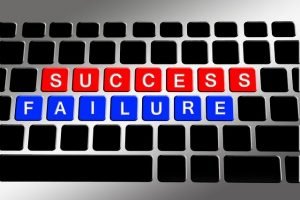Following on from our recent advice column written by an executive with vast experience of interviewing candidates in the public sector, we thought it might be useful to complement that with a view from the private sector. We sourced the following from a successful businessperson in the midlands. It is based on years of hard-won experience.
“I run a small-medium enterprise – I employ 45 people – and a great deal of my time is spent interviewing candidates at all levels, from school-leavers to hardened veterans of the world of work. Here are some pointers that might be useful for candidates preparing for interviews in SME’s.
“First and foremost, it’s important to arm yourself with a method for delivering answers. The STAR method, which stands for Situation, Task, Action, and Result, is one effective approach – and there are others, too. It can help you provide specific examples of your skills and experience in action. Those are invaluable in demonstrating your qualifications for the job. Without an answering method, you may get lost during your own answers – an interview is a pressurised situation, and the method will act like a handrail to guide you through.
Research is key
“Of course, before you can effectively demonstrate your skills, you need to understand the job requirements. This means researching the company, reading the job description carefully, and speaking with anyone you know who has experience in a similar role.
“By doing this, you can tailor your responses during the interview to show how your skills and experience align with the job. I’m always surprised by the number of people I encounter who just haven’t done their research. It’s an unforgiveable error, really.
“In the interview itself, it’s important to remember that the company is looking to hire you because they believe you can add value to their organisation. This means that you should focus on what you can bring to the role and the company, highlighting your skills, experience, and any ideas or suggestions you have for improving processes or adding value.
“At the same time, it’s important to be enthusiastic and show real interest in the job. Don’t forget to tell the interviewer that you want the job and explain why you’re excited about the opportunity.
“This can help reassure the interviewer that you’re committed to the role and the company. Without that, they mightn’t be sure – they might think you wishy-washy. Don’t be afraid to state how keen you are during the interviewing process.
Your time to shine
“Finally, remember that the interview is your chance to shine and show what you can bring to the table. While it’s important to be a team player, you should focus on your own skills and experience. This means emphasising your initiative, creativity, and drive to succeed in the role.
“In short, if you want to ace your interview, prepare well, research the job and the company, highlight your relevant skills and experience, and show your enthusiasm and commitment to the role. By doing so, you can make a strong impression and increase your chances of landing the job you want.
“Good luck – and remember, the company really wants to get someone good, why can’t that be you? “I know I go home from work a very happy woman when I feel I have found the right candidate.”
Featured image courtesy of Pixabay.
Need interview training? Go HERE for all types of interview
Need our help? Complete this form below and we will get back to you






